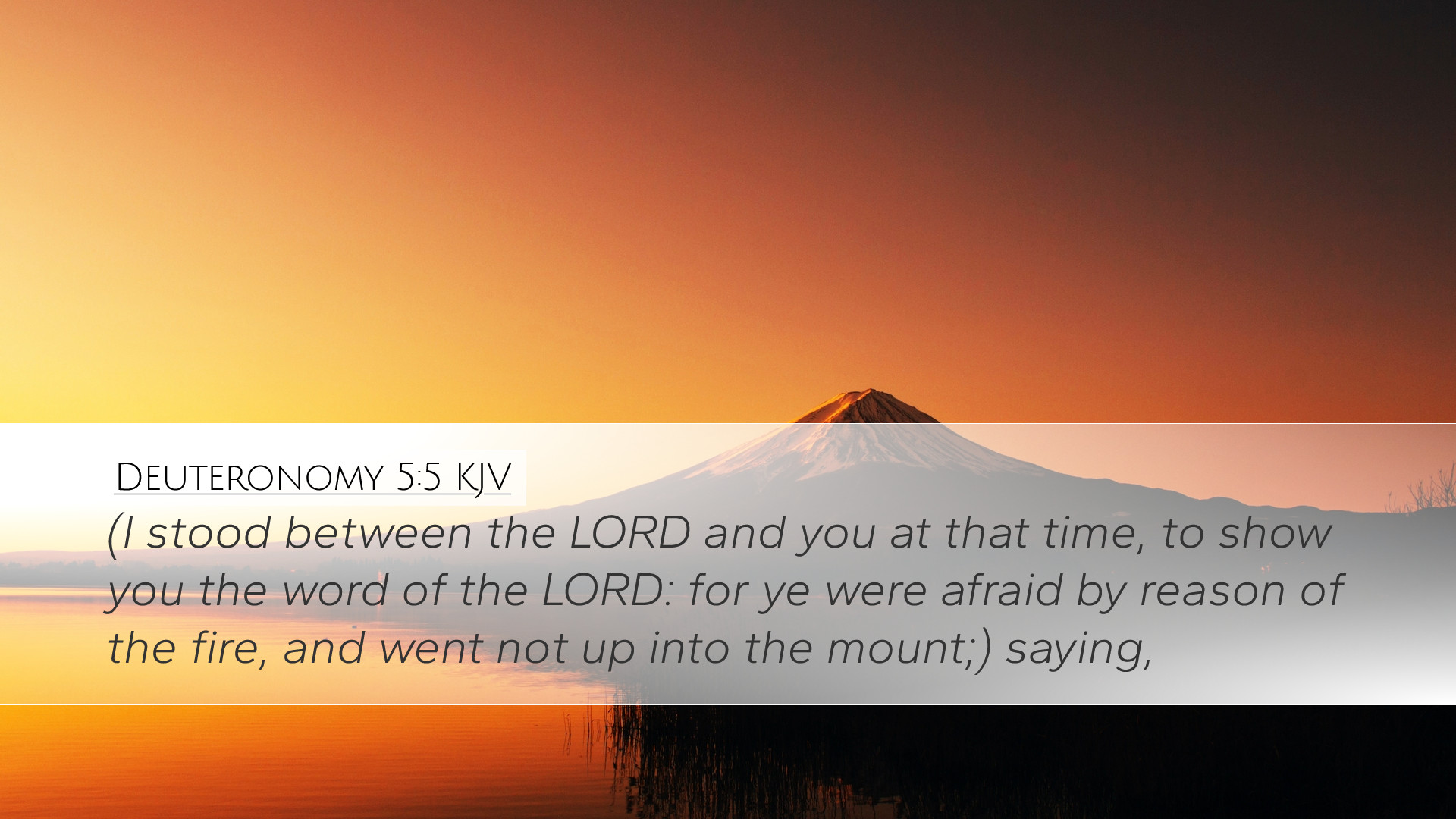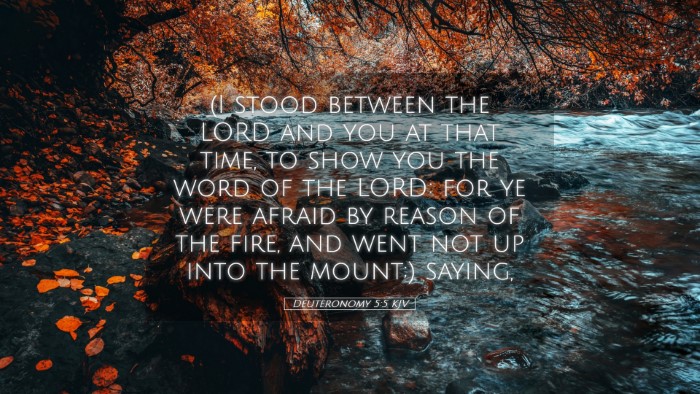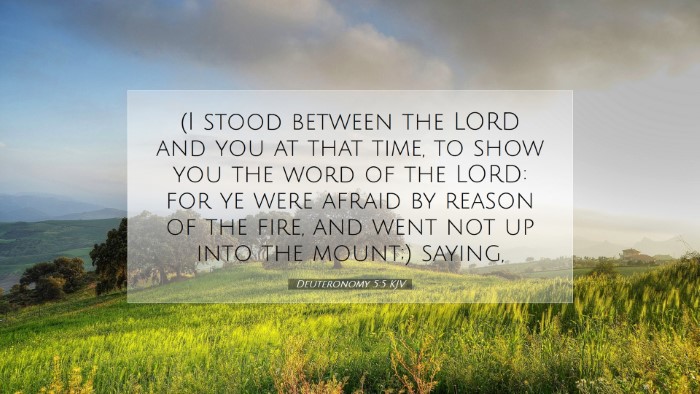Commentary on Deuteronomy 5:5
Deuteronomy 5:5 (ESV): "I stood between the Lord and you at that time, to declare to you the word of the Lord, for you were afraid because of the fire, and you did not go up into the mountain. He said."
This verse forms a critical part of the passage where Moses recounts the giving of the Law at Sinai, specifically focusing on the mediatorial role he played between God and the Israelites. The significance of Moses’ role and the nature of the relationship between God and His people are key themes in understanding this text.
Moses as Mediator
Matthew Henry emphasizes the importance of Moses as a mediator. He highlights that Moses' presence between God and the people was essential for the transmission of divine commandments. This mediation is not just a physical standing but represents a spiritual intercession that signifies the need for a human representative before the divine.
Albert Barnes points out that the fear of the Israelites at Mount Sinai is illustrative of humanity's natural response to the divine holiness. The fire represents God's presence, stirring a deep sense of reverence and dread among the people. This fear led them to seek a mediator, which is a necessary aspect of the relationship between a holy God and sinful humanity.
The Nature of Fear
Fear is a recurring theme in this verse, and it is noted by both Henry and Clarke. Adam Clarke expands on the idea that fear can lead to a variety of responses, ranging from avoidance to reverence. The Israelites' fear prompted them to refrain from approaching God directly, showcasing their understanding of divine majesty and their own frail condition.
Henry suggests that such fear is not entirely negative; rather, it may serve to instill a sense of awe and obedience toward God's commandments. This insight can be particularly instructive for modern believers, who may grapple with the balance of familiarity with God versus the reverence due to Him.
The Role of Divine Instruction
The statement "to declare to you the word of the Lord" indicates the vital role of divine instruction in the life of God's people. Albert Barnes asserts that the giving of the Law is not merely a set of rules but reflects the character of God Himself, outlining how the community can live in a manner pleasing to Him.
This commentary invites theological reflection on how Scripture functions today in the lives of believers. The mediatorial work of Moses prefigures the ultimate mediation of Jesus Christ, who intercedes for humanity and fully embodies God’s word.
Historical Context
Providing background about the context in which this event occurred is crucial. Matthew Henry indicates that the Israelites had just escaped from slavery in Egypt and were standing on the cusp of entering the Promised Land. The giving of the Law was crucial for forming a distinct national identity.
Adam Clarke further provides insights into how the Law served to bind the community of Israel in a covenant relationship with God. The laws laid forth were to be a guide and a foundational block for establishing a society rooted in justice and righteousness.
Application for Today
The implications of this verse resonate with contemporary Christian living. The designation of Moses in the role of mediator sets the stage for understanding how Christians interact with God today. Matthew Henry posits that believers should recognize their need for mediation in approaching God, urging them to look toward Christ as the fulfillment of this role.
Albert Barnes suggests that understanding our position before a holy God should provoke humility and dependence. This acknowledgment has practical implications for how believers live out their faith, emphasizing obedience to God's word as an act of worship stemming from reverence and appreciation of His holiness.
Conclusion
Deuteronomy 5:5 encapsulates significant theological truths regarding God’s communication with humanity, the necessity of mediation, and the proper posture of reverence before God. Drawing from the insights of traditional commentators, this verse challenges believers and scholars alike to consider their approach to God's word, the role of Christ in mediation, and the implications of divine law in forming a godly community.
In a world where the voice of God may often be drowned out by competing narratives, this reminder beckons us to listen intently to His word, recognizing both His majesty and our need for grace.


